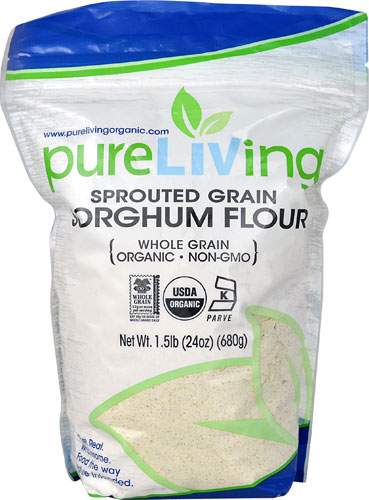For the millions of American who follow a gluten-free diet, out of either necessity or preference, a new study raises concerns about potential exposure to two toxic metals.
The study, based on data from the National Health and Nutrition Examination Survey and published in the journal Epidemiology, found that people who said they adhered to a gluten-free lifestyle had greater levels of arsenic in their urine and mercury in their blood than those who were not gluten-free. The presence of arsenic was nearly twice as high for people consuming a gluten-free diet, and the presence of mercury was 70 percent higher.
“These results indicate that there could be unintended consequences of eating a gluten-free diet,” study co-author Maria Argos, assistant professor of epidemiology at the University of Chicago School of Public Health, says in a university news release.
“But until we perform the studies to determine if there are corresponding health consequences that could be related to higher levels of exposure to arsenic and mercury by eating gluten-free,” Argos adds, “more research is needed before we can determine whether this diet poses a significant health risk.”
As emphasized in the news release, both arsenic and mercury can lead to heart disease, cancer and neurological damage. However, does the possible link between these toxic metals and assorted health problems mean you should ditch your gluten-free diet? No, nutrition experts insist. Instead, they say, you should be mindful of everything you’re putting in your body, whether you’re a gluten-free devotee or not.
For those who are gluten-free, one way to decrease exposure to arsenic is to reduce the number of rice products in your diet — or even eliminate them.
Gluten-free specialist Sara Doll, a fitness nutrition specialist and certified personal trainer, says inorganic arsenic is known to linger in rice and rice products — which crop up in all sorts of gluten-free foods — but it’s fairly easy for a gluten-free dieter to avoid rice altogether.
“Fortunately, gluten-free products today have done a great job of using things other than rice. They incorporate ingredients such as gluten-free oats, sorghum, black beans, coconut flour and almond flour,” says Doll, whose family is gluten-free.
As such, rice and rice products — particularly rice flour, a common gluten-free substitute for wheat flour — are showing up less in gluten-free offerings, she says.
Although rice isn’t the only source of arsenic in food, it is the No. 1 source in the U.S., according to Doll, who operates the Gluten Free Daily website.
“The residuals from a century of lead-arsenate insecticide seep into the agriculture, and rice absorbs it more effectively than most plants,” she says. “And, unfortunately, brown rice has been found to have a higher incidence of arsenic because the outer shell is left intact before it is polished down to make a grain of white rice.”
As for mercury, gluten-free dieters likely will encounter it most often in fish. Eating contaminated fish is the leading cause of mercury exposure in the U.S., according to the National Resources Defense Council.
High-mercury fish that should be dropped from your diet include king mackerel, marlin, orange roughy, shark, swordfish, tilefish and fresh tuna (bigeye and ahi), the National Resources Defense Council says. The council also recommends being finicky about canned tuna.
Since rice and fish are two of the biggest culprits in exposure to arsenic and mercury, Doll suggests that gluten-free dieters stick to lean proteins, gluten-free grains, fruits and vegetables.
“By doing this and staying away from synthetic ingredients, you’ll be ridding your body of toxins naturally,” she says.
Gluten-free expert Nancy Guberti, a functional medicine nutritionist and healthy lifestyle coach, says the presence of arsenic and mercury in some foods underscores the importance of eating in moderation, and rotating the foods you consume so that certain kinds don’t dominate your diet.
“If you must eat the foods with arsenic,” Guberti says, “then support your detoxification pathways to assist in removing toxins.”




